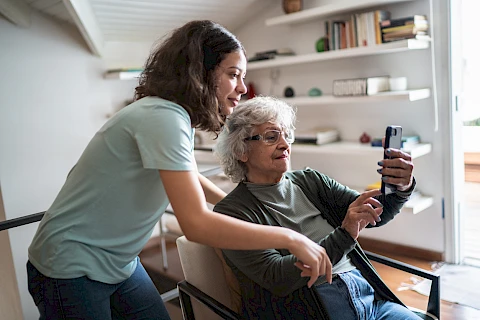
Social media has revolutionized the way we connect with family, friends, and the world around us. For seniors, these platforms provide a great opportunity to stay in touch with loved ones and participate in community activities. However, using social media comes with its own set of risks. By taking some safety measures, seniors can enjoy the benefits while protecting themselves from potential pitfalls.
Understanding Privacy Settings
Privacy settings are key to controlling who sees your information on social media. Popular platforms like Facebook, Instagram, and Twitter offer a range of privacy options.
First, make sure to access the privacy settings on these platforms:
- On Facebook, click the small arrow in the top-right corner, select "Settings & Privacy," then "Privacy Shortcuts."
- On Instagram, go to your profile, tap on the three lines in the top-right corner, select "Settings," then "Privacy."
- On X, formerly known as Twitter, click on your profile photo in the top-right corner, select "Settings and privacy," then "Privacy and safety."
Adjust settings to control who can see your posts, who can send you friend requests, and who can see your personal information. You should revise these settings regularly to keep your profile secure.
Online Etiquette for Seniors
Engaging politely and safely online is key to a positive experience. Be kind and respectful in all your comments and posts. You should avoid getting involved in heated arguments or sharing controversial content. If you come across inappropriate content, report it to the platform by clicking on the report button, usually found in the options menu of a post.
Protecting Personal Information
Being mindful of what you share online is crucial. Certain information should always be kept private: You should avoid sharing personal information like your address, phone number, or financial details. It's important to create strong, unique passwords for each account by combining letters, numbers, and special characters. Use two-factor authentication for an extra layer of security. This usually means you will receive a code on your phone to enter with your password.
Recognizing and Avoiding Scams and Fraud
Seniors are often targets for social media scams and fraud. Knowing what to look out for can help protect you. Be wary of friend requests from people you don't know, especially if their profile looks suspicious or too perfect. You want to look out for messages that ask for money or personal details—they're likely scams. Common scams include fake lottery wins, romance scams, and phishing attempts through fake links or websites. If you suspect you've been targeted, don't reply or click on any links. Report the suspicious activity to the platform and get in touch with someone you trust for help.
Safe Practices for Sharing Content
Sharing photos and personal updates is part of social media's fun, but it's important to do it safely. Avoid posting photos that reveal personal details like your home address. You should also be cautious when sharing locations and disable location services while posting to avoid unintentionally sharing your whereabouts.
Senior Helpers North Central Indiana Helps Seniors Stay Safe Online
Staying safe on social media involves understanding privacy settings, practicing good online etiquette, protecting your personal information, recognizing scams, and sharing content wisely. By following these guidelines, you can enjoy the positive aspects of social media while keeping yourself secure. For personalized assistance and safety tips, contact Senior Helpers North Central Indiana if you live in Grant, Huntington, Kosciusko, or Whitley.